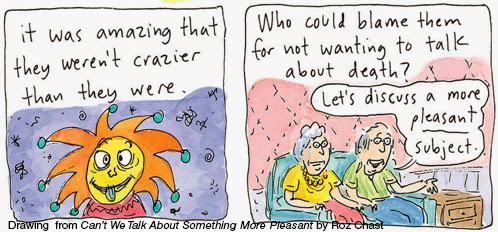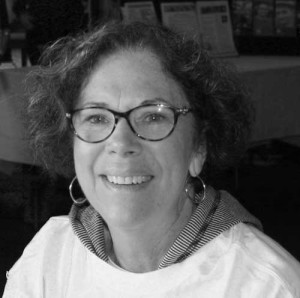 No one likes to talk about the aging process or worse, G-d forbid, death and dying. Adult children notice their parents changing and want to give helpful advice because they are concerned and loving. And that is perhaps wherein the dilemma lies. We want autonomy to make our own decisions and mistakes, and our children worry and make suggestions of what might be a good idea. For us? For them?
No one likes to talk about the aging process or worse, G-d forbid, death and dying. Adult children notice their parents changing and want to give helpful advice because they are concerned and loving. And that is perhaps wherein the dilemma lies. We want autonomy to make our own decisions and mistakes, and our children worry and make suggestions of what might be a good idea. For us? For them?
I did the same thing to my mom after my dad died. ‘Move to Seattle!’ ‘Don’t want to be a burden!’ Case closed. Offers from our kids are made. We reject them because, like my mom, we don’t want to be a burden and are not ready to be helped…yet.
We know we are aging. We certainly notice the changes in ourselves. Our children notice the changes and worry even more. We didn’t raise any dummies, so we all know that there is some inevitability about this process.
Some of our family conversations have gone bust in a really unfortunate way. With my exposure to information about aging through my work at JFS, I kind of thought that things would have gone more smoothly.
But, I think I have found a wonderful tool that may help our family reboot the conversation – Roz Chast’s Can’t We Talk About Something More Pleasant?
Though it made many “best” lists last year, I thought a memoir about death and dying in cartoon form was totally bizarre. But I was curious.
Chast’s wonderful cartoons make me laugh and cry. They are so intimate and familiar. It feels as if she knew my mom. Chast humorously and fairly lays out both points of view: worrying adult kids and their parents who want to remain independent.
Like Chast, I did not live in the same city as my mom, so I too felt guilt, frustration and anger at a situation. I was powerless to change. Like Chast, I worried about “that certain crisis” which would inevitably push us all into new directions. I was luckier than Chast in not being an only child who had no other family members to turn to. And thankfully, I had a less complicated relationship with my mother. The situation was hard enough as it was.
This memoir made me think, and it will make our kids think. I realized I needed to stop and consider what it felt like when I was the worrying child – what I had hoped for my mom. And with luck, my kids will hear that I’m not just being obstinate and stubborn, but expressing a deeper need to have autonomy over my own aging process, even if they don’t like my choices.
I’m getting each of my kids their own copies. And then we are having another conversation.
 By Ellen Hendin
By Ellen Hendin
After a career as an elementary school teacher, Ellen Hendin has spent nine years of her “Second Half “ at JFS. Wife, mother, grandmother, she has learned about aging gracefully from the participants of the program she co-coordinates, Endless Opportunities. Her goal is to embrace life with humor and gusto.
Drawing from Can’t We Talk About Something More Pleasant by Roz Chast.



